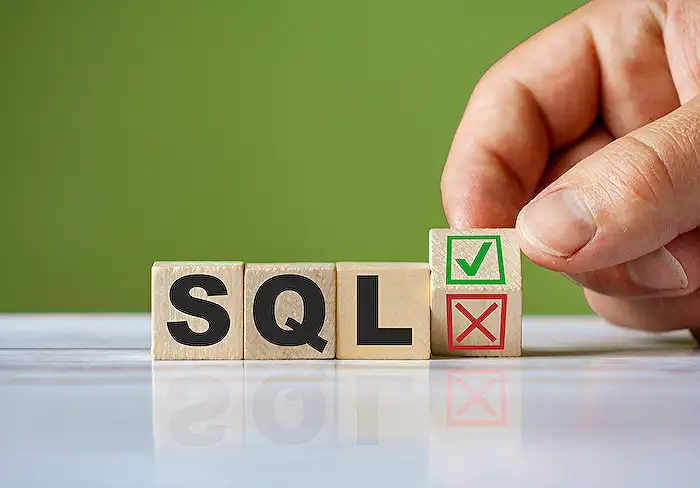- All of Microsoft
Optimize DAX Queries: How to Filter Columns Effectively
Unlock DAX Mastery: Essential Tips for Filtering Columns, Not Tables!
Key insights
- Always filter columns, not tables, when using CALCULATE in DAX.
- Learn DAX through various available guides and resources online.
- The definitive guide to DAX provides comprehensive understanding and insights.
Understanding DAX Calculations
Understanding and mastering Data Analysis Expressions (DAX) is essential for professionals working with data in environments like Microsoft Power BI. DAX helps in creating complex calculations and data models effectively. The primary tip to enhance the efficiency of these models is to focus on filtering columns rather than entire tables when using the CALCULATE function. This approach not only streamlines the calculations but also optimizes the performance of the data models. Various resources, including definitive guides and structured online courses, offer deep dives into DAX, making learning accessible to both beginners and advanced users alike.
In the you_tube_video from "SQLBI," the importance of filtering columns, not tables, in DAX is emphasized. The concept is key when using the CALCULATE function in DAX. This practice ensures more efficiency and accuracy in data retrieval and manipulation.
The video also discusses the broader nuances of learning DAX. Through strategic recommendations, viewers are directed towards comprehensive guides and books. These resources are tailored to help users from beginners to advanced, understanding the ins and outs of DAX.
The content is anchored in SQLBI’s commitment to educating on best practices in data management. The emphasis is on the strategic benefits of proper filtering within Databases, enhancing both performance and outcome in data analytics.
- Always filter columns, not tables, using CALCULATE in DAX.
- Guides and books recommended for learning DAX.
- Efficiency in data management through proper DAX practices.
Exploring DAX in Data Analytics
DAX, or Data Analysis Expressions, is a library of functions and operators used in Power BI, Excel, and other Microsoft data processing tools. It allows for detailed data manipulation and is essential for creating complex calculations, especially in large data sets that are typically used in business intelligence applications. Understanding how to effectively use DAX can significantly enhance your data models' performance and accuracy.
DAX provides various functions that are categorized into logical, text, time intelligence, and more, each tailored for specific scenarios. The key is knowing when and where to apply these functions within the mechanics of data models. For instance, filtering directly at the column level, as opposed to the table level, enhances query performance by reducing unnecessary data processing.
Essential to mastering DAX is the comprehension of its context handling, meaning how data context is passed and interpreted by different DAX functions in a formula. Beginners may start with basic calculations while advanced users dive into more complex functions like CALCULATE, which manipulates context to perform dynamic calculations. Whether you are a novice or an expert, the journey of mastering DAX is filled with continuous learning and application.
Web resources like SQLBI provide detailed guides and educational videos that are instrumental for both learning and mastering DAX. Often, these resources equip users with not just the theoretical knowledge but also practical examples that can be implemented in real-world scenarios. The combination of practical use cases and detailed theorization helps in deeply understanding the practical application of functions like CALCULATE in various business scenarios.
By adopting the practices recommended in SQLBI’s videos, users can improve the performance of data models and enhance the speed and accuracy of their data analysis. Filtering columns instead of tables, as advised, plays a crucial part in this process. Such strategic interventions in using DAX can lead to more efficient data management and smarter business decisions based on accurate data analysis.
To conclude, DAX is not just about processing large volumes of data but doing so intelligently and efficiently. The tips and tricks shared by SQLBI emphasize the strategic filtering of data to optimize performance, a skill that all data analysts working with Microsoft products aim to master. With DAX, as with any language, the depth of knowledge can greatly influence the impact of data analysis outputs on strategic business decisions.
Power BI Planner Teams Developer Tools Python

People also ask
"How do I filter columns in DAX?"
Filtering columns in DAX can be accomplished through the use of specific functions such as 'FILTER', which allows you to specify conditions to selectively return data. This technique is useful for addressing more complex data queries within your Power BI reports.
"Which DAX function removes filters from a table?"
The 'REMOVEFILTERS' function in DAX is used for clearing all filters that have been applied to a table or specific columns, thereby restoring the data to its unfiltered state. This is particularly handy when performing calculations that require a broader dataset.
"Which of the following DAX functions do not return a table filter?"
Functions like 'CALCULATE' or 'SUM' in DAX do not inherently return a table filter. Instead, they are used for calculations and aggregations that manipulate data based on the existing filters but do not create table filters themselves.
"Does filter DAX functions return a table?"
Yes, filter functions in DAX, such as 'FILTER', are designed to return a table. These functions evaluate each row of a table against a specified logical expression and return a new table that only includes rows where the expression is true.
Keywords
Filter columns DAX, DAX filter columns, DAX column filtering, Exclude columns DAX, Select columns DAX, DAX query columns, DAX column operations, DAX selective filtering
